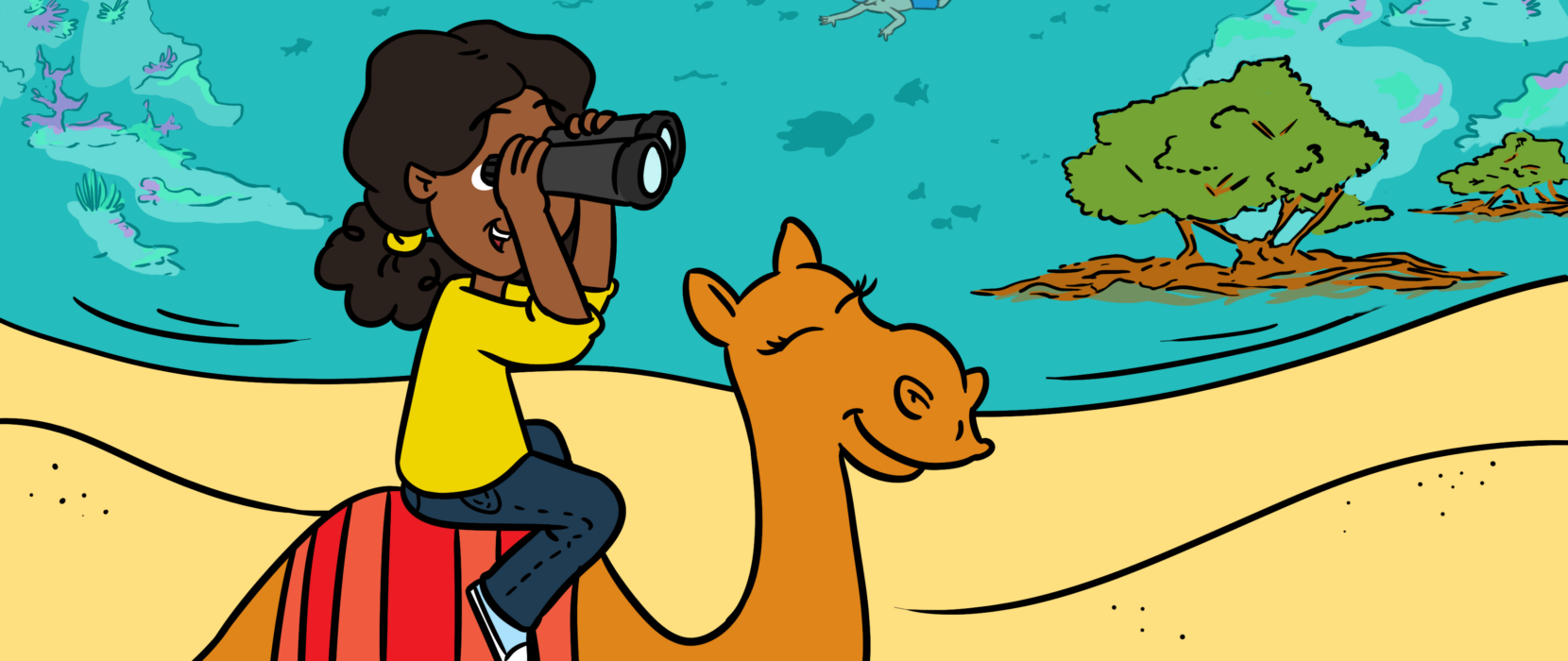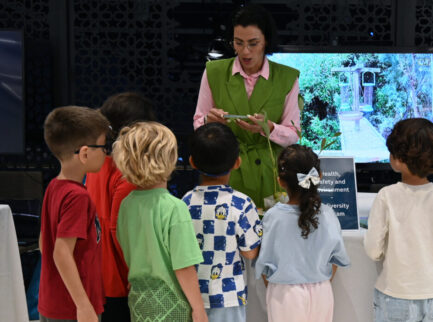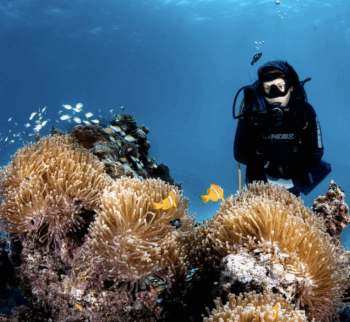As climate change and human activities impact marine ecosystems worldwide, fostering good aquatic stewardship is critical to preserving biodiversity and ensuring a sustainable use of our oceans. In Saudi Arabia, the Red Sea is one of the world’s most unique marine environments, and part of KAUST’s research and work is dedicated to safeguarding this ecosystem. Part of this commitment includes promoting awareness through programs that encourage good aquatic stewardship practices and inspire responsibility toward marine resources. From 2018 to 2023, KAUST ran a pioneering program to educate young readers about the Red Sea’s diverse ecosystem through a special collection of science articles made accessible to children, fostering ocean stewardship for future generations.
This initiative, in partnership with Frontiers for Young Minds, resulted in a comprehensive article collection, edited by KAUST alumnus Dr. Rúben Costa and Adjunct Professor Christian Voolstra. KAUST researchers authored the articles, presenting scientific insights about the Red Sea and all the marine life it encompasses. All articles were reviewed by The KAUST School students aged 8–15 before being published, fostering an understanding of how science is produced and how it contributes to conservation efforts. Overall, this collaboration involved over 70 researchers, graduate students, teachers, and school students, offering an inspiring example of how to engage youth in environmental stewardship. By bringing science to young readers in an understandable format, KAUST has helped spark curiosity about these intricate and complex environments, aiming to build a generation that values and protects our aquatic ecosystems.
The program culminated with the publication of the entire article Collection into a a downloadable Ebook in 2023, and with all its articles translated into Arabic, ensuring local Arab-speaking children can reap the benefits of this literacy tool. The impact of the collection goes beyond education since it provides incentives for good aquatic stewardship practices by empowering youth with the knowledge needed to understand and appreciate these ecosystems. Programs like this, which blend education with hands-on engagement, inspire young people to respect and care for aquatic environments, contributing to a culture of awareness and responsibility toward natural resources.
These efforts align with Saudi Arabia’s Vision 2030 and the Research, Development, and Innovation Authority (RDIA) pillars by promoting environmental sustainability and education. This is also in line with UN SDG4, Quality Education, and SDG14, Life Below Water, by engaging students in scientific educational programs aimed at preserving the marine and coastal ecosystems.
To read the full Collection in Frontiers for Young Minds, visit the collection here.




